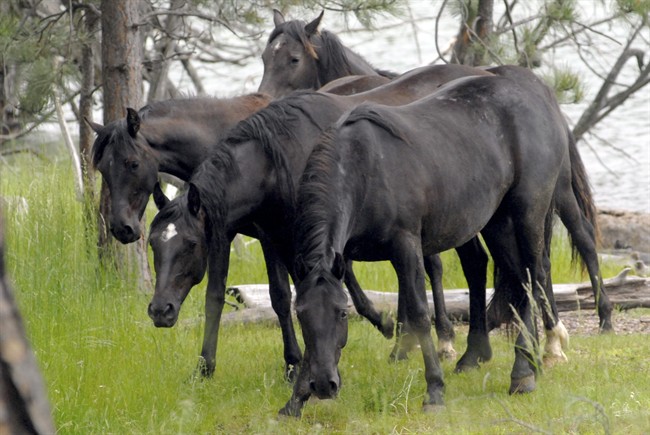In the past two weeks, blood tests have confirmed two horses were infected with West Nile virus in the Cache Creek area.

According to the Society of BC Veterinarians Chapter, most horse owners are aware of the consequences of West Nile and vaccinate accordingly, but many have not administered the annual booster shots. It is strongly recommended by veterinarians that all horses get an annual booster vaccine to maintain a high level of immunity.
Clinical signs of West Nile virus, which attacks the brain and spinal cord nerves, in horses include: muscle tremors of the face, chest and body, weakness in the hind legs, fever, depression and in severe cases, an inability to stand.
Treatment of affected horses act only as antibiotics and are not effective against viral infections. Vaccination prior to exposure is the only way to prevent infection; it is too late to vaccinate after symptoms appear.
Due to the mosquito being the carrier of the virus, along with vaccinations, it’s recommended that horse owners reduce the amount of mosquitoes around their barn and pasture areas.
“The Centre of Disease Control is interested in the case, but I should note there is no direct transmission between horses and humans,” Dr. John Twidale, chair of the Equine Committee and CVMA-Society of BC Veterinarians Chapter told Global News.
“The virus is in birds in B.C. and this is the first time we’ve confirmed this… it’s been working its way west from the Prairies over the past five years since Ontario.”




Comments